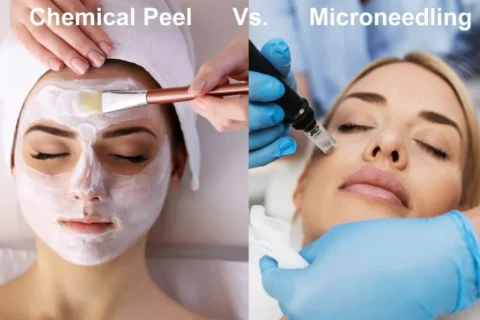5 Sunscreen Myths Debunked
Protecting your skin from the harmful effects of the sun is crucial for maintaining its health and beauty. Yet, there are so many misconceptions surrounding the use of sunscreen that it’s time to set the record straight! In this blog post, we’ll debunk some common myths about using sunscreen and shed light on why it should be an essential part of your daily skincare routine. So grab a hat, slather on some SPF, and let’s dive in!
- Myth 1: Sunscreen is only for sunny days
When it comes to sunscreen, many people believe that it’s only necessary on those bright and sunny days when the sun is shining down relentlessly. But here’s the truth: UV rays can penetrate through clouds, fog, and even windows! That means your skin is constantly exposed to these harmful rays, regardless of whether you’re basking in the sunlight or hiding indoors.
Cloudy days may seem like a respite from the scorching sun, but don’t be fooled. Up to 80% of UV radiation can still reach your skin on overcast days. So even if you can’t see the sun shining brightly above you, remember that its harmful effects are still present.
And let’s not forget about indoor exposure! Whether you’re sitting by a window at work or driving in your car during daylight hours, UV rays can easily pass through glass and reach your skin. This means that even if you’re spending most of your time indoors, applying sunscreen should still be a priority.
So whether it’s raining cats and dogs outside or there isn’t a cloud in sight, make sure to slather on some SPF before stepping out or staying in for the day. Protecting your skin from those sneaky UV rays is essential for maintaining its health and preventing long-term damage.
- Myth 2: You don’t need sunscreen if you’re not going outside for long
Many people believe that if they’re not going to be outside for a long period of time, they don’t need to bother with sunscreen. However, this is a common myth that can have serious consequences for your skin.
Even short periods of sun exposure can lead to damage from harmful UV rays. Whether you’re running errands or just taking a quick walk around the block, it’s important to protect your skin. UV rays can penetrate through clouds and windows, so even if you think you’re safe indoors, you may still be exposed.
Additionally, cumulative sun exposure over time can increase your risk of developing skin cancer. It’s not just about one day in the sun – it’s about the overall amount of sun exposure your skin receives throughout your life.
Sunscreen should be an essential part of your daily skincare routine, regardless of how much time you spend outdoors. Make sure to choose a broad-spectrum sunscreen with at least SPF 30 and apply it generously to all exposed areas of the skin. Don’t forget those commonly overlooked areas like the ears and back of the neck!
- Myth 3: Darker skin tones don’t need sunscreen
One common myth about using sunscreen is that individuals with darker skin tones don’t need to use it. This misconception stems from the belief that melanin, which gives darker skin its color, provides sufficient protection against harmful UV rays. While it’s true that melanin does offer some natural sun protection, it is not enough to completely shield the skin from damage.
UV radiation can still penetrate through the layers of darker skin and cause long-term harm, such as premature aging and an increased risk of skin cancer. It’s important for everyone, regardless of their skin tone, to protect themselves from these damaging effects by wearing sunscreen.
Additionally, certain areas of the body that tend to have less melanin, such as the lips and under-eye area, are particularly susceptible to sun damage in individuals with darker complexions. Therefore, applying sunscreen to these areas is crucial for maintaining overall skin health.
- Myth 4: All sunscreens are the same
When it comes to sunscreen, many people believe that all sunscreens are the same. But is this really true? Let’s debunk this common myth and explore why not all sunscreens are created equal.
First of all, it’s important to understand that there are two main types of sunscreen: chemical and physical. Chemical sunscreens work by absorbing UV rays and converting them into heat energy, while physical sunscreens create a protective barrier on the skin that reflects UV rays away from the body.
The active ingredients in each type of sunscreen vary, which means their effectiveness can differ as well. Some chemical filters may be more effective against UVA rays (which penetrate deeper into the skin), while others may have a higher SPF (Sun Protection Factor) for protection against UVB rays (which cause sunburn).
Additionally, different formulations of sunscreen can offer various benefits. For example, some may be water-resistant or suitable for sensitive skin. The texture and consistency also play a role in how comfortable they feel on your skin.
Furthermore, not all sunscreens provide broad-spectrum protection – meaning they don’t shield you from both UVA and UVB rays. It’s crucial to choose a broad-spectrum sunscreen with an adequate SPF according to your needs.
- Myth 5: Wearing sunscreen will make you vitamin D deficient
One of the common misconceptions about wearing sunscreen is that it can lead to vitamin D deficiency. While it’s true that sunscreen does block the ultraviolet (UV) rays that help our bodies produce vitamin D, this doesn’t mean you should skip sun protection altogether.
Let’s talk about vitamin D. Yes, our bodies do need sunlight to synthesize this essential nutrient. However, just a few minutes of sun exposure on your arms and face are enough for most people to meet their daily requirements. Applying sunscreen won’t completely block all UV rays; some will still penetrate through and allow your body to produce vitamin D.
Furthermore, there are other ways to ensure adequate vitamin D levels besides relying solely on sunlight exposure. You can get vitamin D from various food sources such as fatty fish, fortified dairy products, and supplements if necessary.
Remember, protecting your skin from harmful UV rays by wearing sunscreen is crucial in preventing skin damage and reducing the risk of skin cancer. So don’t fear using sunscreen – it won’t automatically make you deficient in vitamin D!
Conclusion
It is important to debunk the common myths surrounding sunscreen. Sunscreen should be a part of our daily skincare routine, regardless of whether it’s sunny or cloudy outside. The harmful effects of UV rays can still penetrate through clouds and cause damage to our skin.
So let’s break free from these misconceptions and prioritize using sunscreen as a fundamental step in maintaining healthy and protected skin throughout the year! Stay informed, and stay safe under the sun! To learn more, visit GOLDCOAST medspa, at 233 E Erie, Suite 100, Chicago, IL 60611, or call 312-664-2128 for the best possible care.


